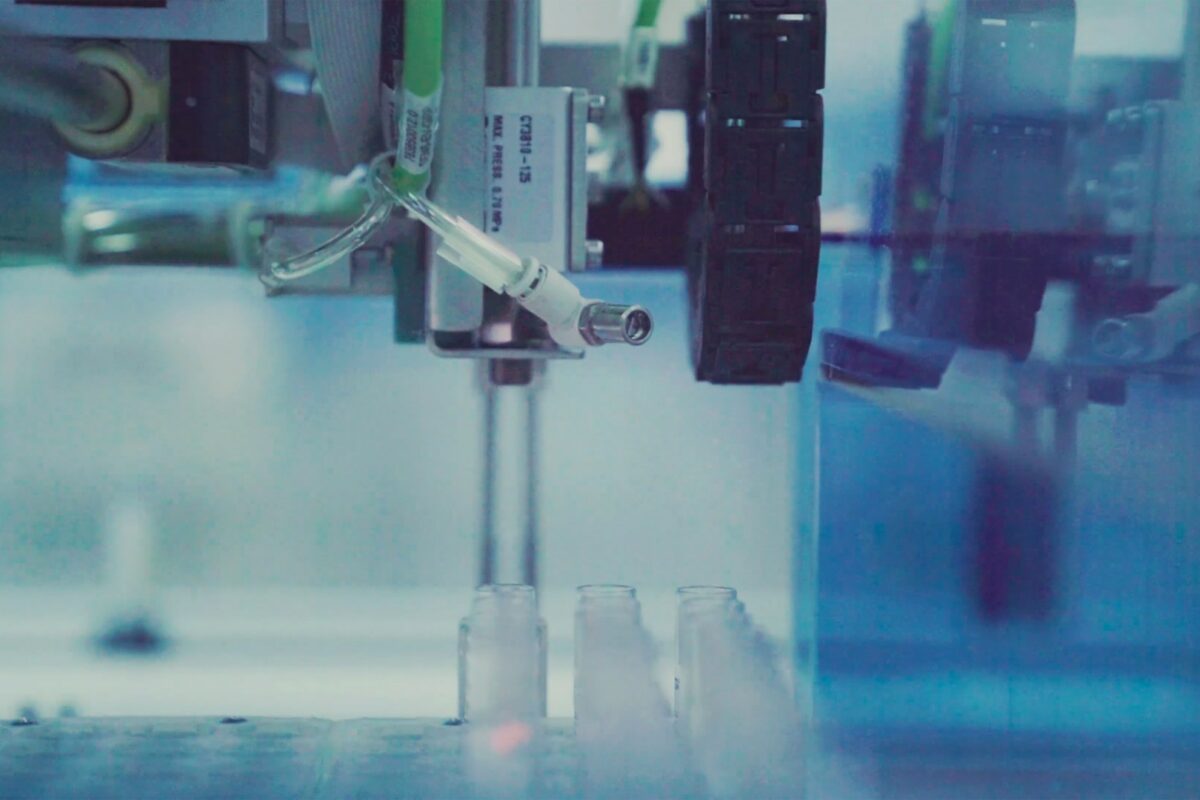The 5-Aminoimidazole-4-carboxamide ribonucleotide (AICAR) peptide has garnered attention in the scientific community for its potential to influence various biochemical processes, particularly those related to cellular metabolism. This peptide is an analog of adenosine monophosphate (AMP). It is believed to act as an activator of AMP-activated protein kinase (AMPK), a key regulator of energy balance within cells.
While AICAR’s alleged role in modulating energy metabolism is well-documented, ongoing research suggests that its properties may extend far beyond this function. This article explores the speculative and emerging research implications of AICAR in areas such as mitochondrial biogenesis, autophagy, and other aspects of cellular function. The versatility of this peptide makes it an intriguing subject for future investigations aimed at understanding its broader implications in physiology.
AICAR Peptide: Introduction
AICAR peptide has emerged as a compound of interest within the realm of biochemical research, particularly due to its potential to modulate cellular energy homeostasis. As an analog of AMP, AICAR is thought to mimic certain functions of AMP, leading to the activation of AMPK. Studies suggest that this enzyme is a pivotal regulator of energy balance, influencing processes such as glucose uptake, fatty acid oxidation, and mitochondrial activity. The prospect that AICAR might impact these processes has led researchers to explore its possible implications in various fields, from exercise physiology to cellular aging.
Given its possible impact on energy regulation, AICAR has been studied extensively within the context of metabolism. However, there is growing interest in the hypothesis that AICAR’s properties may extend beyond mere energy balance, potentially influencing other critical cellular functions. These include, but are not limited to, mitochondrial biogenesis, autophagy, and the regulation of oxidative stress. This article will delve into these potential research implications, offering a speculative exploration of AICAR’s broader role in cellular physiology.
AICAR Peptide: AMPK Activation
AMPK is often referred to as a cellular energy sensor crucial for maintaining energy balance. It becomes activated in response to an increased AMP/ATP ratio, a condition typically indicative of energy depletion. Once activated, AMPK kickstarts a cascade of events designed to restore energy balance, including the potential support of glucose uptake and fatty acid oxidation while inhibiting anabolic processes that consume energy.
AICAR Peptide: Mitochondrial Biogenesis
Mitochondria, often referred to as the powerhouses of the cell, are central to energy production. Mitochondrial biogenesis, the process by which new mitochondria are created within cells, is essential for maintaining cellular energy output, especially in tissues with high energy demands. There is a growing collection of data suggesting that AMPK activation may promote mitochondrial biogenesis by upregulating key transcription factors such as peroxisome proliferator-activated receptor gamma coactivator 1-alpha (PGC-1α).
It has been hypothesized that AICAR’s potential to activate AMPK might also stimulate mitochondrial biogenesis. This prospect is particularly intriguing in the context of cellular aging, where a decline in mitochondrial function is often observed. If AICAR may be suggested to promote mitochondrial biogenesis, it might open new avenues for research into interventions aimed at mitigating cellular age-related declines in cellular energy production.
AICAR Peptide: Autophagy and Cellular Implications
Autophagy is a cellular process that implicates the degradation and recycling of harmed organelles and proteins. This process is paramount for maintaining cellular function, especially under stress. AMPK is thought to play a role in regulation, particularly in response to energy stress.
Research indicates that AICAR might influence autophagy through its activation of AMPK. By promoting autophagy, AICAR may potentially aid in the removal of damaged mitochondria and other cellular components, thereby contributing to overall cellular function. This aspect of AICAR’s function may be of particular interest in the study of neurodegenerative conditions, where impaired autophagy is often implicated.
AICAR Peptide: Oxidative Stress
Oxidative stress is the result of an imbalance between the production of reactive oxygen species (ROS) and the ability to detoxify these reactive intermediates. Excessive oxidative stress is associated with cellular damage and has been linked to a variety of pathological conditions. AMPK activation has been suggested to modulate oxidative stress, possibly through the upregulation of antioxidant defenses.
The hypothesis that AICAR, through AMPK activation, might influence oxidative stress opens up intriguing possibilities for research. If AICAR may be suggested to support antioxidant capacity, it might be investigated as a tool for studying conditions characterized by excessive oxidative stress. This might include research into cardiovascular function, where oxidative stress is thought to be a contributor to disease progression.
AICAR Peptide: Conclusion
AICAR peptide, primarily studied for its possible role as an AMPK activator, is believed to hold significant potential for research beyond its impact on cellular energy balance. The speculative implications of AICAR in areas such as mitochondrial biogenesis, autophagy, and oxidative stress regulation suggest that this peptide might be a valuable tool for investigating a range of cellular processes. While much of the current research focuses on its metabolic properties, the broader implications of AICAR in cellular physiology warrant further exploration. Peptides for sale are available online to licensed professionals.
References
[i] Martin-Hidalgo, D., Hurtado de Llera, A., Calle-Guisado, V., Gonzalez-Fernandez, L., Garcia-Marin, L., & Bragado, M. J. (2018). AMPK Function in Mammalian Spermatozoa. International journal of molecular sciences, 19(11), 3293. https://doi.org/10.3390/ijms19113293
[ii] Su, C. C., Hsieh, K. L., Liu, P. L., Yeh, H. C., Huang, S. P., Fang, S. H., Cheng, W. C., Huang, K. H., Chiu, F. Y., Lin, I. L., Huang, M. Y., & Li, C. Y. (2019). AICAR Induces Apoptosis and Inhibits Migration and Invasion in Prostate Cancer Cells Through an AMPK/mTOR-Dependent Pathway. International journal of molecular sciences, 20(7), 1647. https://doi.org/10.3390/ijms20071647
[iii] Ishii, N., Matsumura, T., Kinoshita, H., Motoshima, H., Kojima, K., Tsutsumi, A., Kawasaki, S., Yano, M., Senokuchi, T., Asano, T., Nishikawa, T., & Araki, E. (2009). Activation of AMP-activated protein kinase suppresses oxidized low-density lipoprotein-induced macrophage proliferation. The Journal of biological chemistry, 284(50), 34561–34569. https://doi.org/10.1074/jbc.M109.028043
[iv] Stone, J. D., Narine, A., & Tulis, D. A. (2012). Inhibition of vascular smooth muscle growth via signaling crosstalk between AMP-activated protein kinase and cAMP-dependent protein kinase. Frontiers in physiology, 3, 409. https://doi.org/10.3389/fphys.2012.00409
[v] Corton, J. M., Gillespie, J. G., Hawley, S. A., & Hardie, D. G. (1995). 5-aminoimidazole-4-carboxamide ribonucleoside. A specific method for activating AMP-activated protein kinase in intact cells?. European journal of biochemistry, 229(2), 558–565. https://doi.org/10.1111/j.1432-1033.1995.tb20498.x




